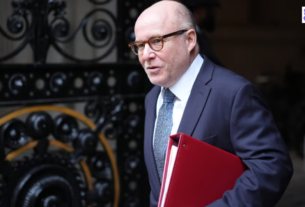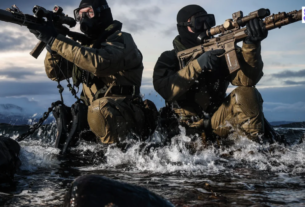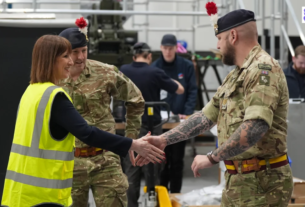The UK government has announced a comprehensive sanctions package targeting Russia, marking its most extensive set of measures to date. This move aims to intensify pressure on Moscow amid ongoing geopolitical tensions and in response to Russia’s continued military actions in Ukraine.
Key Aspects of the Sanctions Package:
- Targeting the ‘Shadow Fleet’: The UK has sanctioned up to 100 oil tankers involved in circumventing international sanctions, known as the “shadow fleet.” These vessels have been transporting Russian oil to evade existing trade restrictions.
- Technological Containment Measures: The sanctions include a ban on exporting quantum computing technology to Russia, aiming to deny Moscow access to critical systems for advanced cryptography and military innovation. Additionally, sectoral sanctions target aerospace and telecommunications industries, prohibiting exports of dual-use technologies such as advanced avionics and satellite components.
- Expansion of Trade Restrictions: The UK’s Russia (Sanctions) (EU Exit) (Amendment) Regulations 2025 have introduced further trade sanctions, including prohibitions on exporting certain chemicals, electronics, machinery, plastics, and metals to Russia. These measures build upon existing trade restrictions under the Russia (Sanctions) (EU Exit) Regulations 2019.
International Coordination:
This announcement coincides with a broader international effort to address Russian aggression. European leaders have issued an ultimatum to Russian President Vladimir Putin, demanding an unconditional 30-day ceasefire by May 12 or face “massive” new sanctions. The UK, along with France, Germany, Poland, and Ukraine, has been actively involved in these diplomatic efforts. U.S. President Donald Trump has also expressed support for the ceasefire initiative.
Implications:
These sanctions represent a significant escalation in the UK’s response to Russia’s actions. By targeting key sectors and entities, the UK aims to disrupt Russia’s military capabilities and economic resilience. The international coordination underscores a unified stance among Western nations in holding Russia accountable for its actions in Ukraine.




